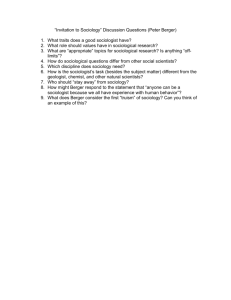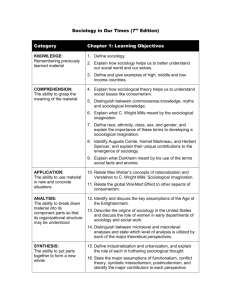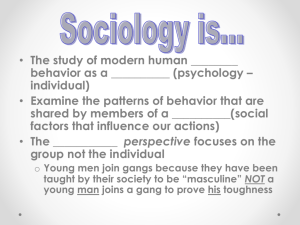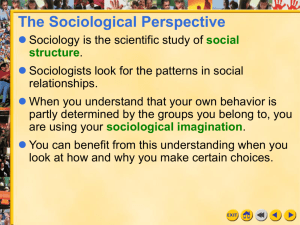The Sociological Perspective: Robertson Sociololgy © 1981 Worth
advertisement
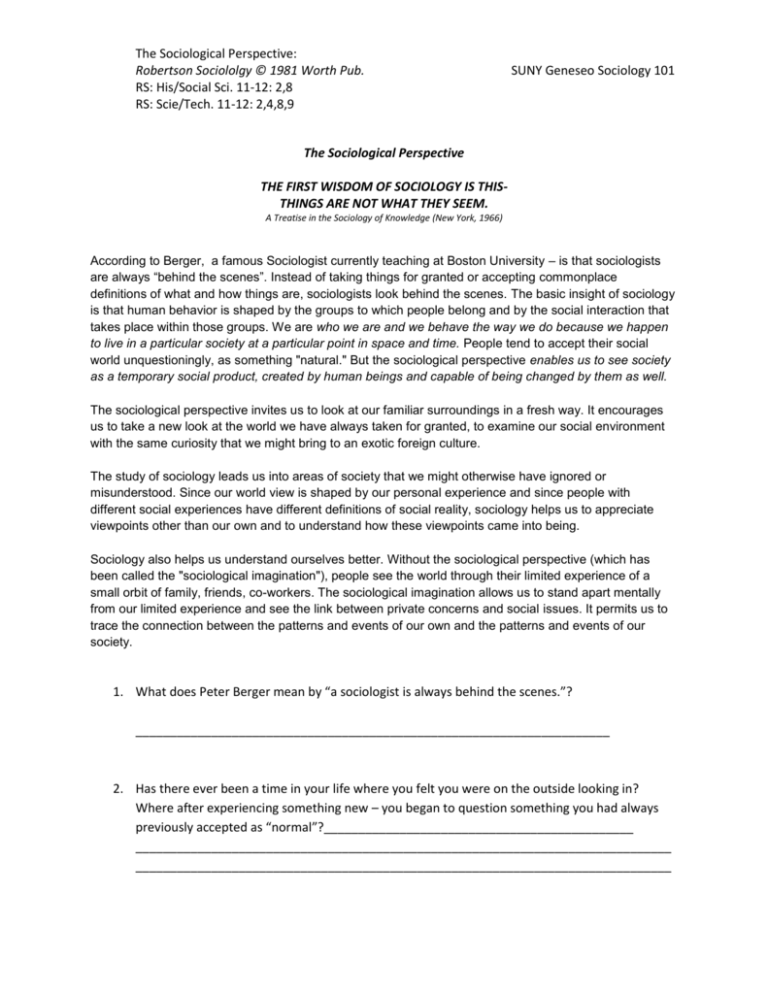
The Sociological Perspective: Robertson Sociololgy © 1981 Worth Pub. RS: His/Social Sci. 11-12: 2,8 RS: Scie/Tech. 11-12: 2,4,8,9 SUNY Geneseo Sociology 101 The Sociological Perspective THE FIRST WISDOM OF SOCIOLOGY IS THISTHINGS ARE NOT WHAT THEY SEEM. A Treatise in the Sociology of Knowledge (New York, 1966) According to Berger, a famous Sociologist currently teaching at Boston University – is that sociologists are always “behind the scenes”. Instead of taking things for granted or accepting commonplace definitions of what and how things are, sociologists look behind the scenes. The basic insight of sociology is that human behavior is shaped by the groups to which people belong and by the social interaction that takes place within those groups. We are who we are and we behave the way we do because we happen to live in a particular society at a particular point in space and time. People tend to accept their social world unquestioningly, as something "natural." But the sociological perspective enables us to see society as a temporary social product, created by human beings and capable of being changed by them as well. The sociological perspective invites us to look at our familiar surroundings in a fresh way. It encourages us to take a new look at the world we have always taken for granted, to examine our social environment with the same curiosity that we might bring to an exotic foreign culture. The study of sociology leads us into areas of society that we might otherwise have ignored or misunderstood. Since our world view is shaped by our personal experience and since people with different social experiences have different definitions of social reality, sociology helps us to appreciate viewpoints other than our own and to understand how these viewpoints came into being. Sociology also helps us understand ourselves better. Without the sociological perspective (which has been called the "sociological imagination"), people see the world through their limited experience of a small orbit of family, friends, co-workers. The sociological imagination allows us to stand apart mentally from our limited experience and see the link between private concerns and social issues. It permits us to trace the connection between the patterns and events of our own and the patterns and events of our society. 1. What does Peter Berger mean by “a sociologist is always behind the scenes.”? _____________________________________________________________________ 2. Has there ever been a time in your life where you felt you were on the outside looking in? Where after experiencing something new – you began to question something you had always previously accepted as “normal”?_____________________________________________ ______________________________________________________________________________ ______________________________________________________________________________

